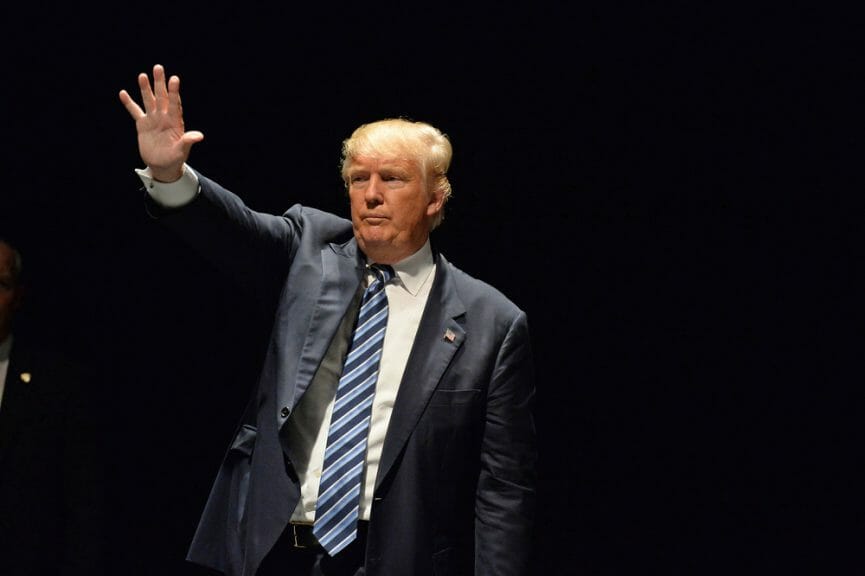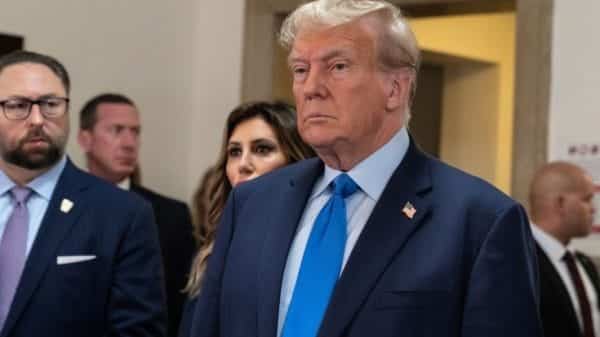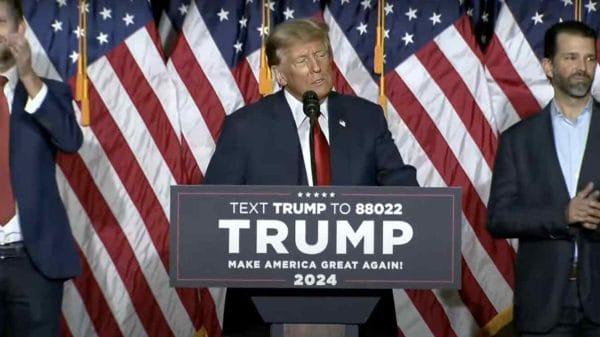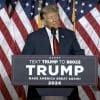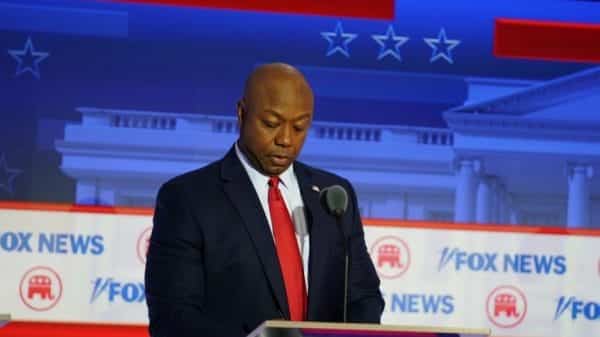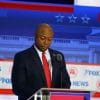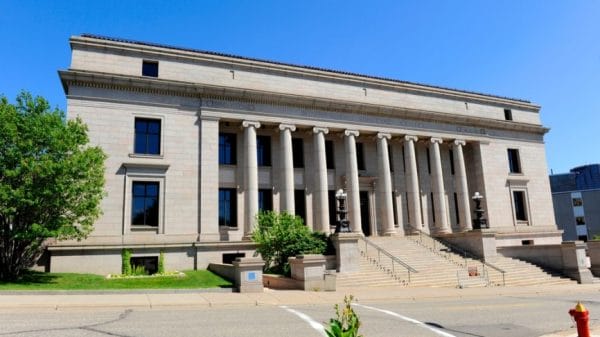Donald Trump‘s legal team is waging a fiery defense against the latest criminal indictment brought forth by federal prosecutors, asserting that his alleged efforts to overturn the 2020 presidential election were mere “aspirational” requests and thus protected under the umbrella of “free speech.” As the legal battleground intensifies, Trump’s attorneys are crafting a narrative that seeks to navigate the fine line between expressing opinions and crossing the threshold into criminal conduct.
The indictment, unveiled last week, thrusts into the spotlight a phone call in which Trump urged Georgia’s secretary of state to “find” a specific number of votes, enough to secure victory in the state. John Lauro, a lawyer representing Trump, took to the airwaves to challenge the notion of this being a direct order, terming it an “aspirational ask.” Lauro emphasized that Trump’s act of requesting was not tantamount to action, drawing a clear distinction between words and deeds.
Lauro’s defense extends to other instances, such as Trump’s call on his vice-president, Mike Pence, to halt the counting of states’ electoral college votes on January 6, 2021. Once again, the term “aspirational” takes center stage, with Lauro asserting that this was merely a plea, not a command.
The battleground shifts to the First Amendment, as Trump’s legal team underscores his right to express views and opinions on the 2020 elections. Lauro’s argument seeks to shield Trump’s statements under the protective umbrella of free speech, a constitutional cornerstone.
Yet, the prosecution paints a different picture. Federal prosecutors have charged Trump with criminal counts including defrauding the US and conspiring to obstruct official proceedings. They allege that Trump orchestrated the participation of fabricated representatives from seven states in the electoral college, a charge that hinges on the murky realm of criminal intent.
This legal tango is shaping up to be a defining moment in Trump’s post-presidential journey. As he faces a potential third criminal case this year, Trump’s legal team is navigating treacherous waters, treading a fine line between fervent defense and the perils of facing mounting criminal charges.
Trump’s fury is palpable as he reacts to what he views as a grave legal threat. He has taken to social media to express his intent to seek recusal of the assigned judge and even a change of venue. The choice of venue becomes critical, with Trump’s attorneys favoring West Virginia, a state where Trump had previously found support.
In the midst of it all, the narrative of “aspirational” requests takes center stage, a testament to the complexity of legal battles fought not just in the courtroom, but also in the court of public opinion. As the legal drama unfolds, the nation watches with bated breath, awaiting the resolution of a pivotal chapter in the intricate saga of American politics.


